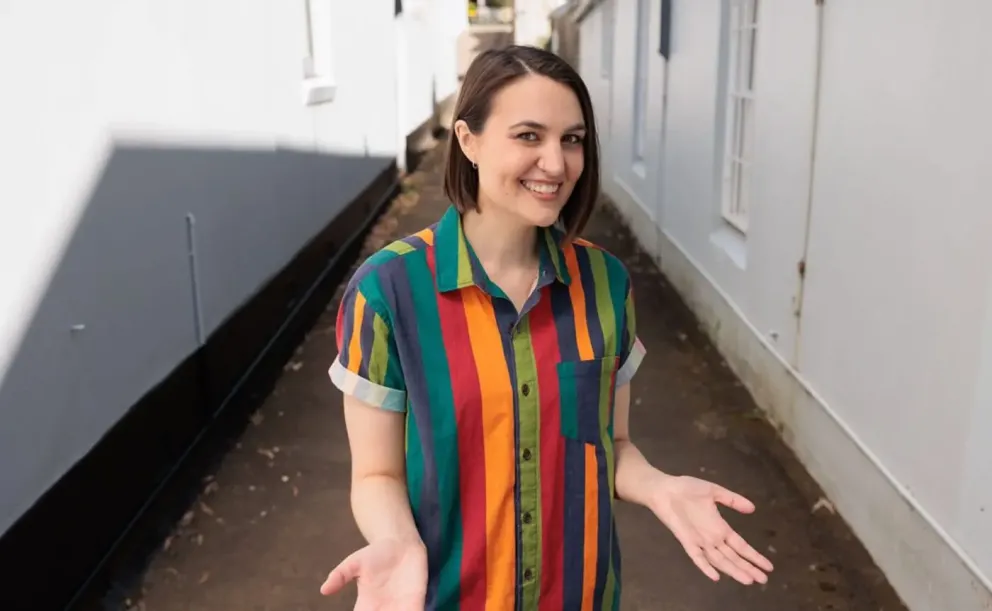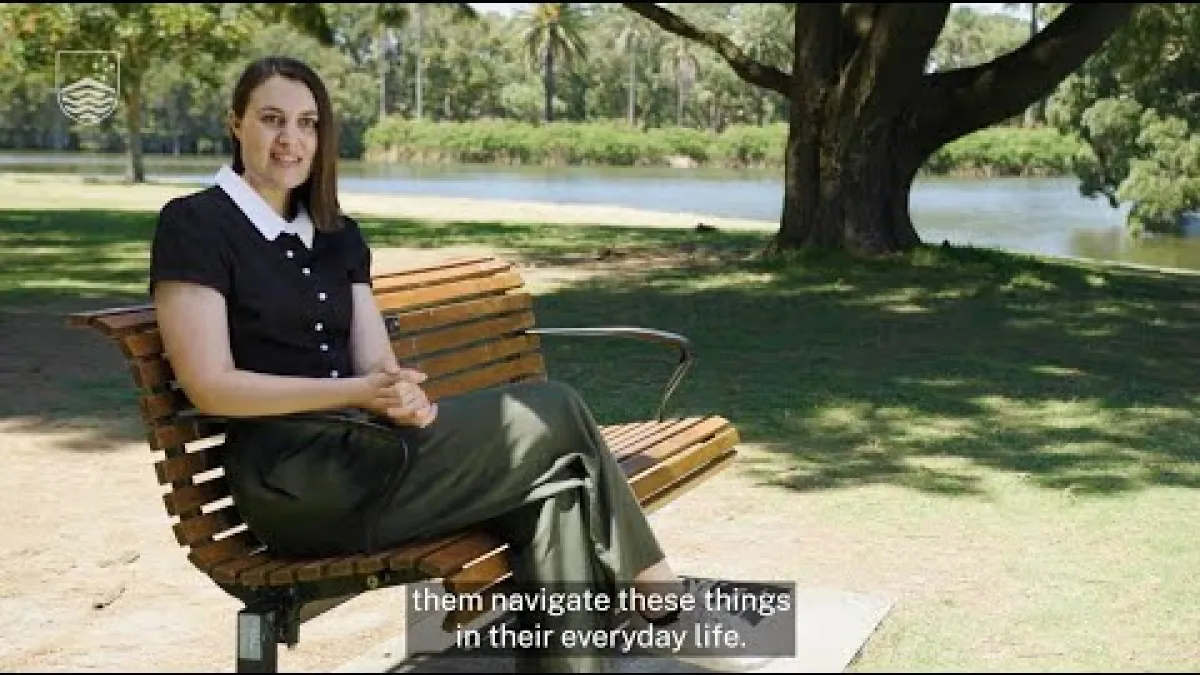Lee Constable: writer, public edu-tainer, science communicator
From social media to events to print to television and hopefully towards the big screen -- Lee Constable has been exemplary of the versatility, importance, power and fun of science communication.
This year, Lee was able to share her diverse experiences in science communication and the media when she delivered the 2025 ANU Commencement Address. Her work was further commended when she was awarded the Young Alum of the Year at the 2025 ANU Alumni Awards.
After winning the latter award, Lee stopped by her alma mater, CPAS, for a morning tea and to speak to our Masters, HDRs and staff about her current ambitions and upcoming work. She also gave us a quick chat about what led her to science communication -- a program she did not even know existed -- and her continuing ambitions as a science communicator and media personality.
(Follow Lee Constable on leeconstable.com, or find her on instagram and other social media.
How did you end up at CPAS, studying Science Communication?
I didn't really know that science communication was a field when I first went into my undergrad! It wasn't until I was doing my honours in biology that I heard about the Masters in Science Communication.
I was doing community radio and podcasting about sustainability. I had a casual job giving nighttime tours at the botanical gardens to schools. I was the environmental officer at my school. And besides studying science, I was also doing drama as well as sociology -- the study of society and self.
In many ways, I had been doing things that were environmental and science communication, I just did not know that was a thing -- and it was exciting to know it was a thing! And that there was a place on campus where I already was where I could learn about it in a practical way.
What were some memorable things you learned at CPAS?
CPAS had a practical side with internships, and the Science Circus at the time. That really lit up my brain, and made me go 'wow'. I began to realise possibilities that I hadn't before.
One of the frustrating things I learned across different subjects -- which I still have to remind myself of today! -- is that telling people information and facts doesn't necessarily change their minds. Especially in the world of controversial topics like climate change, this is most true.
Sci comm isn't just about mass communication. It's about working with different people with different expertise. What you learn in sci comm is about translation of technical information. Regardless of whether you want to do that to the public or experts in other fields or people in your workplace or just people in sites or in government or in community, those skills are so important.
What made you want to become a public-facing science communicator?
Public-facing science communication was something I gravitated to, because I'd always been more drawn to community outreach and grassroot programs and media entertainment. I'd also always that long term goal of making more documentaries and factual content for screens and social media serieses for different audiences. This is how I can change hearts and minds in different ways.
However, here's also lots of great job for sci com introverts!
What are some of those other roles?
With the people I studied with, some of them went to various roles in science communication and outreach, like in Questacon.
Some went on to work with Centres of Excellence, helping with the communication and research translation in those spaces. Some have gone into PR and media, both in front of and behind the scenes. There are people who work in places in science policy, local government, conservation -- you name it!
What would you say to a student who is on the fence about taking a sci comm course or program?
I think you should do it because it's the best! Studying science communication gave me practical skills as well as the theory behind it. You can learn a lot by doing, but to have that theoretical backing, and the science of science communication itself, has made me an even more effective practitioner. It's given me somewhere to go back to when I come up against challenges as a practitioner and science communicator.
Some people go directly into practicing science communication, but I think having that background and having that awareness and connection to academics who research science communication in all its forms has really benefited of me. I'm able to make more of a difference.


